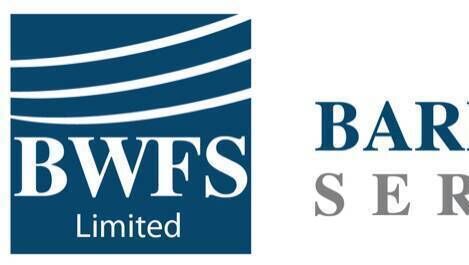Sort out your pension because your future self is your own responsibility

Barry Walsh Financial Services Ltd.
If you see your post-work years as a time for travel and hobbies, then you need to make a financial plan.
There’s Giorgio Armani still strutting the catwalk – or at least designing the gowns of the models who do – at the great age of 90.
He joins other celebrity nonagenarians – the likes of Clint Eastwood (94), David Attenborough (98) and Joan Collins (91) – who are still busy and showing no signs of retiring any time soon.
But for the rest of us, hanging up our P60 and collecting the bus pass is something to look forward to.
However, without proper planning, it can become a lonely and poor existence.

If you see post-work years as a time for travel and hobbies, then you will need money. Women have been ill served in retirement. The income gender gap means women earn 31 per cent less than men due to years taken out of work for family commitments and having lower incomes – not to mention living longer.
While our state pension is among the best in Europe, it is still only €14,416.60 a year – and the public bill is astronomical. A future Government may not be able to pay this bill and could be faced with the Hobson’s choice of extending the retirement age and/or reducing the pension.
PAYE workers often believe their company “will look after them” regarding their pension and while companies may contribute toward an occupational scheme, they do not always explain what it means, how much it will buy or that you can add to it yourself.
They may not even tell you that additional contributions you do make attract top rate tax relief, meaning that every €60 becomes €100 overnight.
Women fare worse in retirement than men. Although the state pension, paid weekly, is the same, it is dependent on the contributions made during working life – your “stamps.”
There are derogations for women who have taken time out of the workplace to care for children, but there are still legacy issues surrounding this for those in their 60s.
When it comes to personal provision however, it is dire.
Women live longer, earn less in their later years, and prioritise immediate needs over their own future self when it comes to household budgeting, according to research.
They are also more likely to work part time than men and on lower wages.
All these choices influence a woman’s income – and while that might be fine during their working life if they have partners earning, it can make a cliff-jump more likely once they reach pension age.
The good news is that there is positive movement in this area, according to new research commissioned by AIB from The Future Laboratory.
The “linear gap” may close by 2049 – but only if women help themselves and are supported in this.
“It is encouraging that we have a more agile, hybrid working environment – all of which means more engagement in the workplace from women,” it was said, citing an unexpected positive of Covid.
“About 20 per cent of CEOs in Ireland are female, up from 13 per cent in 2019 and there are more promotion opportunities. Younger women have more bargaining power, Gen Z are rethinking benefits, pay and transparency. They are value matching.”
Women in particular have been ill served in retirement. They are also having fewer children.
The average family size is down 26 per cent since 1996. While this encourages more women back into the workforce, it has implications for fewer future taxpayers in the country.
The new EU rules on reporting gender pay gaps forces companies to rethink their strategies and ensure that women are less discriminated against.
The (very) long-awaited compulsory pension contribution scheme will finally begin in September 2025.
Called ‘My Future Fund,’ it forces employers and employees to contribute to a pension fund which will receive a top-up from the Government. It is not unlike how PRSI is paid but will be individual to each person.
It is said that this will be “particularly impactful” and will “not only bump up female participation but also raise the awareness about the importance of planning for retirement".
Right now, you can kickstart your pension. There is never a better time and with the tax return deadline of October 31 approaching, 'you secure your future' by doing so. 'Pension savings grow tax free, and if your employer matches it, it’s essentially free money.’ Our thinking needs to change.
People often associate pensions with distant retirement but contributing to a pension offers an immediate 66pc tax boost on this year’s tax return. The benefits are clear.
“For every €100 you put into your pension, you get €40 back from the Government. A €100 investment only costs you €60, it is a 66 per cent tax advantage. It is money for jam. If there is a bonus you do not immediately need, consider investing it in your pension to maximise this tax benefit. Your future self will thank you.”
One: The first step is to find out what you are already entitled to from the State. You can apply for your contribution record on PRSI from the Department of Social Protection (Mywelfare.ie). This tells you what you are in line for from age 66 (or up to 68 depending on your age now).
Two: What other pensions might you be entitled to?
Consider all previous employments, including those abroad and write to them c/o the Pension Trustee to find out. Ask for a benefits statement and projection of future value.
Three: How much do you need in retirement? With the mortgage paid off and the kids gone, be realistic, but err on the generous side. You want to thrive in retirement, not just survive. Remember, pensioners pay tax too, once they earn over €18,000 a year from all sources, so bear this in mind.
Four: What is the gap? Use the Pension Authority’s calculator to find out at pensionsauthority.ie or gov.ie link. This will tell you your monthly contribution requirement to get there based on current information, available pension data and your expectations.
Five: If you are a PAYE worker, ask about making an additional voluntary contribution as a salary deduction. Notify Revenue to get tax relief on your pay slip. Then keep on top of it. Your future self is your own responsibility.
For further information contact: Barry Walsh Q.F.A. ALIA (dip), Managing Director Barry Walsh Financial Services Limited Landline: +353(0)51 584776 Mobile: +353(0)86 238 4225 linkedin.com/in/barrywalshfs e-mail: info@bwfs.ie Web Site: www.bwfs.ie






